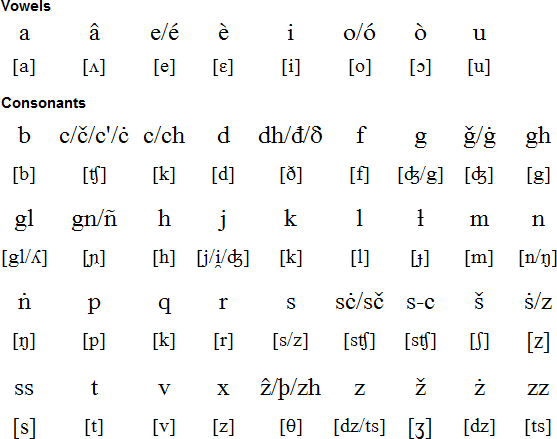
INTERNATIONAL MEDIA 2018

ROMANESCO
Hello
-Ao (used between friends)
How are you?
-Come va? or Come stai? / Come te butta?
Yes
-Avoja! (stronger yes)
Calm down/Chill
-Scialla
Food coma/drowsyness
-Abbioccio (no direct English translation)
il er
lo lo
i li
gli l' or i
la la
le le
un 'n
uno 'no
una 'na
FROM
AMEDEA
Good morning/Good afternoon/Good night
-Buongiorno/Buon pomeriggio or buona sera/Buona notte
My name is...
-Mi chiamo...
Thank you/You're welcome
-Grazie/Prego
Please, can I use the bathroom?
-Perfavore, posso usare il bagno?
I don't understand. Can you say it again?
-Non capisco. Lo puoi ri-dire?
Left/Right
-Sinistra/Destra

FLORENTINE
To be silent
-Chetarsi (normally fare silenzio or tacere)
To have lunch
-Desinare (alt. to pranzare)
To stop
-Abbozzare (normally smetterre or cessare)
Gnocchi
-Topini (topo- rat/mouse)
Cool
-Ganzo (used by younger generations)

FROM
DANTE'S
INFERNO

-The Divine Comedy written by poet Dante Alighieri was not originally translated into every dialect, and the ability to read it was a cornerstone of education and class status. Due to his work being so widely read, it became the most understood.

MILANESE
Hello/Expressing agreement
-Bella (slang used by younger generations)
Wasting time
-Cazzeggiare
Good luck
-In boca al lupo (respond with "Crepi lupo")
Okay/Expressing approval
-Top
To french kiss
-Limonare (used by younger generations)
ENZO JANNACCI
"Vengo Anche' Io No Tu No"
Jannacci, a Milan native, enjoyed a popular career in musical arts and cabaret in Italy while working as a practicing cardiologist in South Africa and the United States.
9
distinct vowel
sounds
ENGLISH

STANDARD ITALIAN

MILANESE

Spoken with

VENETIAN
Do you speak English?
How do you say... ?
Have a nice day
Where is the bathroom?
Response to "How are you?"




